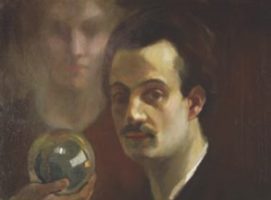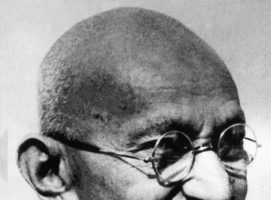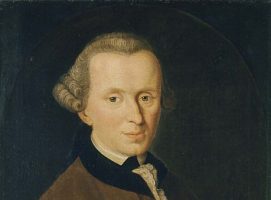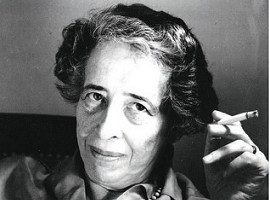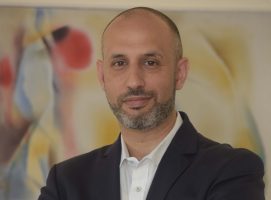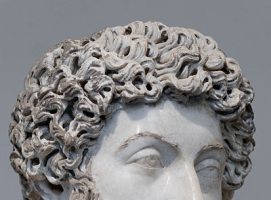Showing 58 articles
The Philosophy of Climbing
Author: Eddie SelbyOctober 1, 2020
“I am a wanderer and mountain-climber, said he to his heart, I love not the plains, and it seemeth I cannot long sit still. And whatever may still overtake me as fate and experience a wandering will be therein, and a mountain-climbing: in the end one experienceth only oneself.” ― Friedrich Nietzsche Nietzsche (1844–1900) [...]Anne Conway: the Ultimate Unity of Spirit and Matter
Author: Siobhan FarrarJuly 30, 2020
Seventeenth century England was a time of conflict and rapid change, and it is under such conditions that Countess Anne Conway, one of the few female philosophers of her time, developed her clarity of vision and influence. From her home at Ragley Hall and mostly through letters, Anne Conway was in continuous dialogue with the [...]From Obstacle to Opportunity
Author: Gilad SommerJune 1, 2020
A Story of Exile The year was 65 AD, a little less than a hundred years after the assassination of Julius Caesar and the foundation of the Roman Empire. Musonius Rufus, the foremost Stoic philosopher of his times, known by some as the “Roman Socrates”, was accused by emperor Nero to have participated in a [...]Meeting Kahlil Gibran
Author: Shraddha ShettyApril 17, 2020
When I was very young, I came across a book called The Prophet, by poet, painter, thinker, but perhaps above all, a philosopher, Kahlil Gibran. I clearly remember a sense of mystery; the existence of truths about myself, beyond the known. I did not know what I was searching for, but it awakened in me [...]Living the Spirit of Gandhiji
Author: Vivek DivekarNovember 30, 2018
Over the ages, many Individuals, even while seeking to overcome their own personal challenges have endeavoured and succeeded in contributing to Humanity. The greatness of these persons was defined by the spirit of purpose they exhibited during their lifetime. These were common men, who chose to walk in the footsteps trod earlier by giants. This [...]Kant and the Kingdom of Ends
Author: Nataliya PetlevychSeptember 14, 2018
In the second half of the 18th century Immanuel Kant formulated a new a golden standard for human relations: “Act in such a way as to treat humanity, whether in your own person or in that of anyone else, always as an end and never merely as a means.” This maxim has influenced numerous other [...]An interview with H. P. Blavatsky
Author: Jorge Angel LivragaSeptember 13, 2018
In the first few weeks of 1991 I found myself in London; I had come for one of my regular meetings with the principal representatives of New Acropolis in the UK and Ireland, who had travelled there for the same purpose. On a typical cold and rainy morning, I was visiting one of my regular [...]Does Free Will Exist?
Author: Julian ScottJune 3, 2018
The question of free will is one of the oldest and most enduring questions facing humanity. The ancient Greeks considered it in their tragedies, such as Oedipus Rex, where it seemed as though the hero’s fate was predetermined in spite of any actions he might take to prevent or alter it. The Greeks and their [...]The Spectre of Totalitarianism – Hannah Arendt (1906-1975)
Author: Julian ScottMarch 8, 2018
You may have noticed this year that a number of journalists have been making references to the 20th century political theorist Hannah Arendt, widely regarded as one of the most important political philosophers of the last century. Her first major work, entitled The Origins of Totalitarianism, is more than 500 pages long and not an [...]That Which You Seek
Author: Dipti SanzgiriJanuary 21, 2018
At some points in our lives, many of us face some nagging questions. What manifests is a sense of restlessness, a lack of real happiness and peace – despite the absence of any apparent reason for feeling so. Questions like, Am I doing what I should be doing? Do my actions have any meaning or [...]Daring to Dream of a New and Better World -Q&A with Yaron Barzilay
Author: Manjula NanavatiJanuary 21, 2018
Tall, trim and relaxed in any environment, Yaron Barzilay smiles easily, but weighs his words very carefully. Understated and well-read, he punctuates his conversations unexpectedly, with an incisive colloquial humor that betrays his acute sense of the current socio-economic and political climate, and his capacious grasp of India’s history and mythology. Professionally, Yaron Barzilay is [...]A Stoic guide to our Emotions – Pt. 2: The sentiments of the sage
Author: Gilad SommerDecember 16, 2017
Despite the popular conception of the Stoics, in their writings, the ideal sage is not portrayed as a cold, apathetic person. By reflecting on the good and the bad, and on the true nature of things, the sage develops natural, rational sentiments – Hai Eupatheiai, literally, the good passions. These are: Wish, Caution and Joy. [...]


